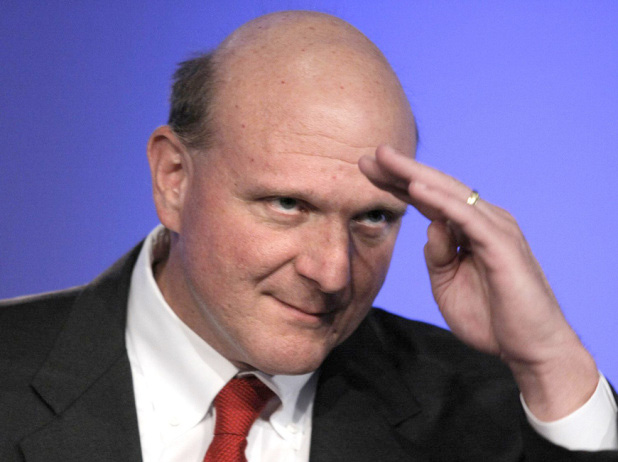It looks to me as if Ballmer’s planned resignation from Microsoft is going to leave Nokia high and dry without an operating system. Because any successor to Ballmer will cancel Windows Phone which has managed to take Microsoft’s penetration in smartphones from 5% before it had a serious partnership with Nokia all the way to…err…4% today. Except for Nokia, all the other handset partners have pretty much transitioned from Windows Phone to Android or, perhaps in the future, Firefox or Tizen (a joint Samsung/Intel mobile OS).
There seems to be increasing evidence that Microsoft planned to acquire Nokia at the start of this year, that Nokia was ready to do it, Ballmer was ready to do it but the Microsoft board, or perhaps Bill Gates personally, vetoed it in February. Up until that point, Nokia had increasingly focused on Windows Phone and killed off all the internal competing operating systems even when phones that were on-track to be very successful (winning awards, with people from some countries going to other countries to be able to get their hands on one etc).
Bill Gates then did something incredible, presumably just a few days later. He went on television on February 18th on CBS (video) and told Charlie Rose that:”we didn’t get out and lead early[…]we didn’t miss cellphones but the way we went about it didn’t allow us to get the leadership so it is clearly a mistake.”
This is the chairman of the board of Microsoft talking about the fastest growing industry that the world has ever seen and is basically saying that they screwed up. This is just after he listed recent accomplishments of Ballmer as Windows 8 (a fiasco), Surface (written down last quarter) and Bing (when did you last us Bing?). So perhaps it is not surprising that Ballmer is now getting to prepare his three envelopes.
Since Bill Gates is a key person in the new CEO search as both Chairman, founder and, I think still, largest shareholder, it seems unlikely that any new CEO is going to come in with a plan to continue Windows Phone, any more than the successor to Otellini at Intel (who also “didn’t get the leadership”) would have been someone without a mobile strategy.
I’m not sure I entirely buy the belief Tomi Ahonen and others that the biggest strategic mistake that Microsoft made in this area was to acquire Skype. Clearly the carriers don’t like Skype and it has so many users that it potentially represents a major threat to the voice business of the carriers. And the dirty secret of the carriers is that they make all their money from voice because people don’t realize they are being so overcharged. After all, with modern vocoders, it is only 12 or so kilobits per second of data, so 1000 minutes of voice is less than 10 megabits or about 5 seconds of YouTube video. But they charge you $50 for the voice and 2c for the video. However, one area where everyone is definitely right: without the support of the carriers you can’t sell your hardware. Without China Mobile iPhone has very low penetration in China; without DoCoMo, low penetration in Japan; and so on. Without the active support of the carriers, Nokia has low penetration pretty much everywhere. And remember, 2 years ago it had 30% market share shipping well over a million cell-phones per day. Actually the carriers make a ton on texting too, which uses truly negligible bandwidth, but iMessage, WhatsApp, WeChat and others are increasingly bypassing it.
So far, the lack of a successful mobile strategy has claimed the crowns of Intel and now Microsoft. Will Nokia be next?
Share this post via:






Comments
0 Replies to “Ballmer’s Retirement Leaves Nokia High and Dry”
You must register or log in to view/post comments.